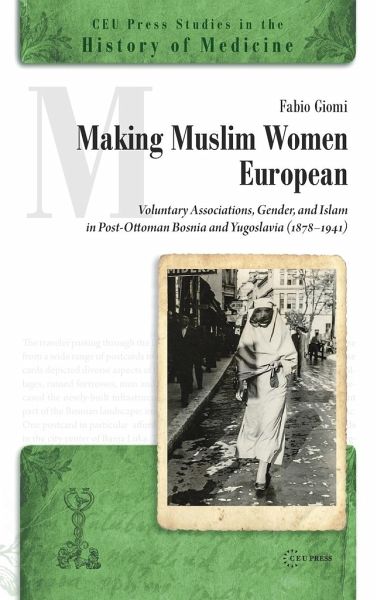Nicht lieferbar

Making Muslim Women European
Voluntary Associations, Gender, and Islam in Post-Ottoman Bosnia and Yugoslavia (1878-1941)
Versandkostenfrei!
Nicht lieferbar
This social, cultural, and political history of Slavic Muslim women of the Yugoslav region in the first decades of the post-Ottoman era is the first to provide a comprehensive overview of the issues confronting these women. It is based on a study of voluntary associations (philanthropic, cultural, Islamic-traditionalist, and feminist) of the period. It is broadly held that Muslim women were silent and relegated to a purely private space until 1945, when the communist state "unveiled" and "liberated" them from the top down. After systematic archival research in Bosnia, Croatia, Serbia, and Aust...
This social, cultural, and political history of Slavic Muslim women of the Yugoslav region in the first decades of the post-Ottoman era is the first to provide a comprehensive overview of the issues confronting these women. It is based on a study of voluntary associations (philanthropic, cultural, Islamic-traditionalist, and feminist) of the period. It is broadly held that Muslim women were silent and relegated to a purely private space until 1945, when the communist state "unveiled" and "liberated" them from the top down. After systematic archival research in Bosnia, Croatia, Serbia, and Austria, Fabio Giomi challenges this view by showing: ¿ How different sectors of the Yugoslav elite through association publications, imagined the role of Muslim women in post-Ottoman times, and how Muslim women took part in the construction or the contestation of these narratives. ¿ How associations employed different means in order to forge a generation of "New Muslim Women" able to cope with the post-Ottoman political and social circumstances. ¿ And how Muslim women used the tools provided by the associations in order to pursue their own projects, aims and agendas. The insights are relevant for today's challenges facing Muslim women in Europe. The text is illustrated with exceptional photographs.



